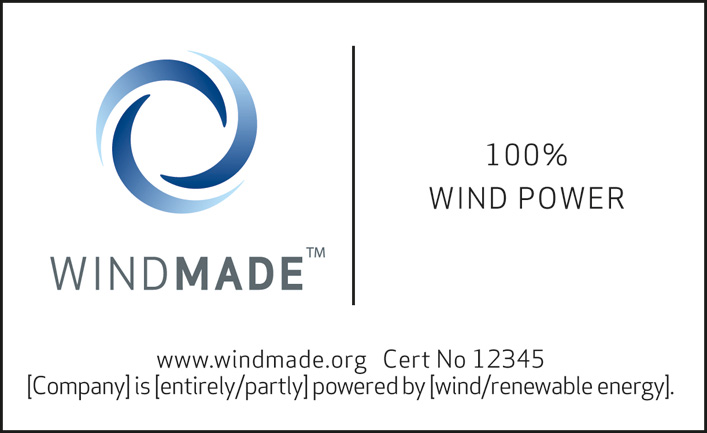WindMade: Commercializing Renewable Energy Products
Revolve talks to Angelika Pullen, Director of Communications at WindMade, about the launch of the label and the future of renewable products and cities.
On November 18, 2011, several large global enterprises including Motorola Mobility, Deutsche Bank, Bloomberg, Method and BD (Becton, Dickinson and Co.), announced their commitment to source at least one quarter of their energy needs from wind turbines. The announcement situates within these companies’ commitment to become certified under the recently launched WindMade consumer label.
WindMade is a non-profit organisation supported by Vestas Wind Systems, the Global Wind Energy Council (GWEC), WWF, the UN Global Compact, the LEGO Group and Bloomberg. The label represents the world’s first global consumer label for companies and products that use windpower to produce their products and power their operations. It allows participating companies to communicate in a transparent way the share of wind power and other renewable sources they use as part of the overall power demand of their operations.
“The ultimate goal is to create a kind of ‘consumer pull effect’ which will drive demand for wind power operations worldwide and boost investments that enable the renewable energy market to grow – and not limited to those markets where wind power has already taken off” says Angelika Pullen, Director of Communications for WindMade.

The WindMade ‘company and organisation label’ enables enterprises, once authorized, to use the label for their corporate communications such as print, online, TV and radio advertising, reports, press releases, stationary, signage on buildings and retail facilities.
In a world where consumers are becoming increasingly sensitive to sustainability and companies that support it – according to a recent survey, 90% of consumers worldwide wish to see more renewable energy and 79% have a more positive perception of brands produced with renewable energy – the marketing potential is obvious and it should thus come as no surprise that companies are eager to jump on the ‘renewable bandwagon’.
Currently, a second standard is in the making which would allow individual products to bear WindMade certification. Pullen states that: “obviously global product markets are where the real progress can be made. Leading consumer brands carry the potential to give WindMade the required level of visibility”. The WindMade product label is to be introduced in 2012.
But also according to Pullen, WindMade can do much more. “One could think of making ‘events’ WindMade certified for example. Also, there are cities in the North of Germany and Denmark who generate a vast share of their electricity from wind power and it would not be unthinkable to devise a WindMade standard for cities. After all, if we are to make a real impact, you ought to have a kind of visionary perspective.”
With the signing on of giants Deutsche Bank, Motorola, PricewaterhouseCoopers, Bloomberg and Lego, this visionary perspective seems to have begun paying off and the WindMade standard could quite possibly be on route towards becoming a trusted logo on consumer brands.
Whether one day we will live in WindMade cities, consuming WindMade products remains to be seen. However, it is a tell-tale sign that sustainability is moving out of the traditional ‘do gooder section’ and into the realm of industry where its business potential is firmly embraced. Ultimately, such a development can only be strongly supported.